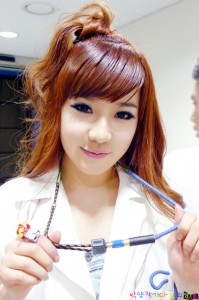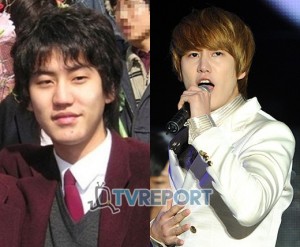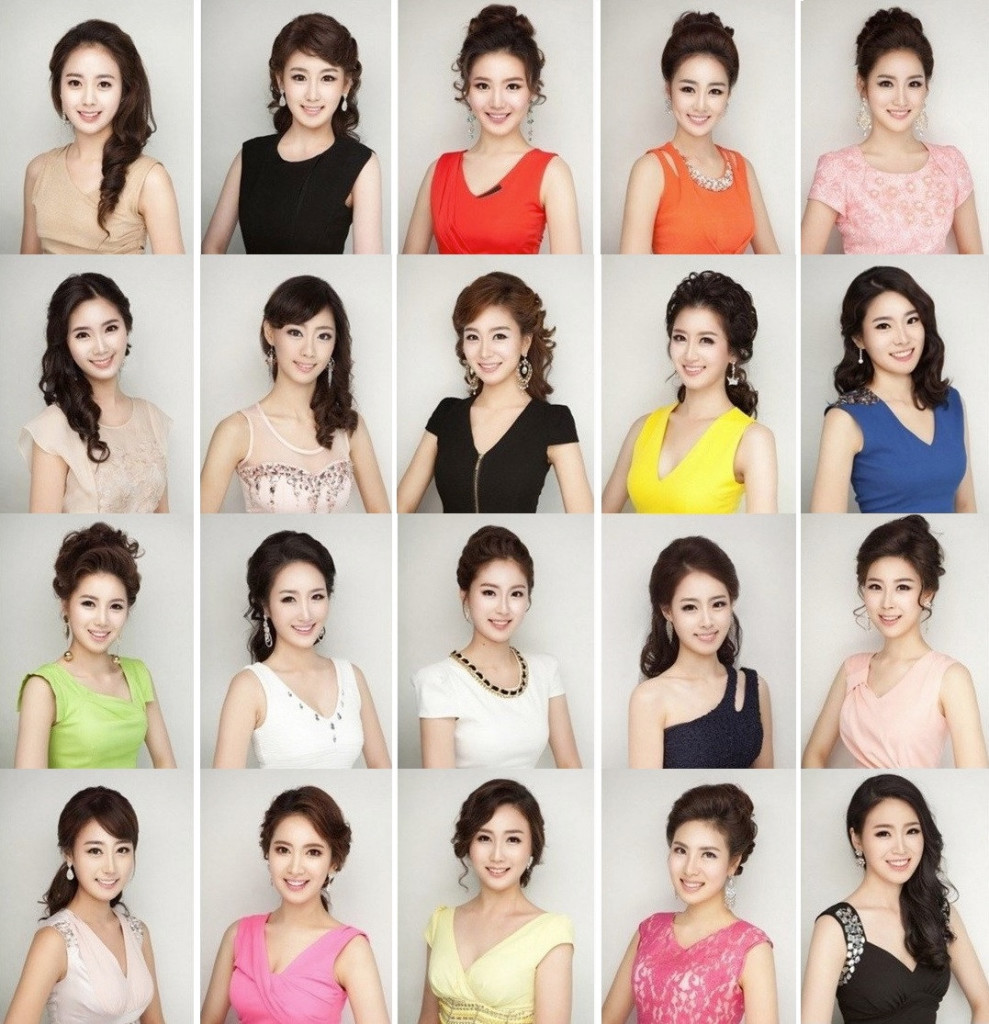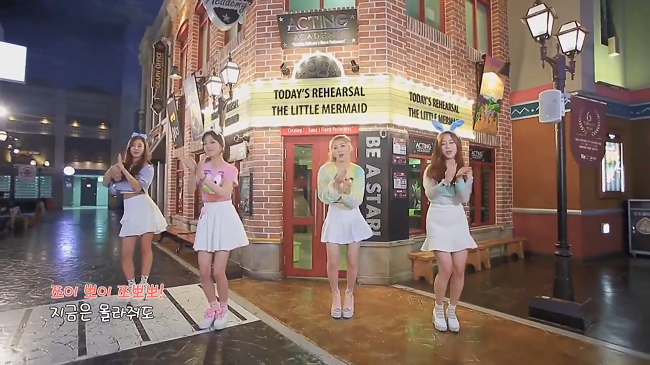 It seems that one can’t throw a rock into the dense proverbial forest that is K-entertainment without hitting something — or more accurately, someone — that has sparked a debate over plastic surgery and its place not only in South Korea’s entertainment industry, but also more broadly in society. Running a search for one’s favorite celebrity on Google, Bing, Naver, or Daum will inevitably turn up the auto-suggestion of “[celebrity’s name] plastic surgery” or “[celebrity’s name before and after”]; online message boards have become platforms for speculation and minute analysis over subtle (or not-so-subtle) changes in a star’s facial features.
It seems that one can’t throw a rock into the dense proverbial forest that is K-entertainment without hitting something — or more accurately, someone — that has sparked a debate over plastic surgery and its place not only in South Korea’s entertainment industry, but also more broadly in society. Running a search for one’s favorite celebrity on Google, Bing, Naver, or Daum will inevitably turn up the auto-suggestion of “[celebrity’s name] plastic surgery” or “[celebrity’s name before and after”]; online message boards have become platforms for speculation and minute analysis over subtle (or not-so-subtle) changes in a star’s facial features.
We here at Seoulbeats have participated in the hoopla on numerous occasions, beating the dead plastic surgery horse so far into the ground that it recently resurfaced in South Korea, Looney Tunes-style, and trotted over to Seoul’s so-called “beauty belt” for a quick nip and tuck — because hey, why not? If the surgeons working the strip in Apgujeong can turn Ok Joo-hyun into this, just imagine would they could do with a dead horse.
It’s not exactly common for Korean celebrities to throw their two cents into the ring regarding plastic surgery, largely because plastic surgery and K-pop pretty much go hand in hand; in fact, if any K-entertainment star brings up plastic surgery in an interview or on a variety program, it’s usually because (s)he is denying the latest round of plastic surgery accusations levied against him/her (or, in the unfortunate case of SISTAR‘s Hyorin, admitting that she underwent a procedure to add epicanthic folds — known in popular parlance as “double eyelid surgery” — when she had previously claimed that she’d never gone under the knife).
However, solo starlet G.NA recently engaged comedian Lee Yoon-suk on the topic, coming out in defense of surgical enhancement after Lee voiced disapproval of his wife getting plastic surgery. Lee argued it would be a “violation of [their] marriage oath,” stating that he disagreed with the idea that plastic surgery is done so that one may feel better about oneself. G.NA responded by pointing out the importance of one’s “personal satisfaction and happiness,” sharing that her grandfather grew much happier after receiving hair transplants and putting forth the idea that improving one’s appearance, can be a critical self-esteem boost for many people. Lee countered that if he loves his wife and thinks her face is perfect, why should she have to fix anything? G.NA’s rebuttal, sadly, wasn’t quite…uh…stimulating enough to keep the debate going (for the curious: “I…it’s not like…UGH men are so frustrating!”), but at least she tried?
 Now, it probably shouldn’t come as a surprise that G.NA, of all people, might be defending plastic surgery; it’s a personal opinion, but I think that she has one of the most obviously surgically-altered faces in the entire Korean entertainment industry (also ranking up there: Park Bom). Short of fully admitting the extent to which her face has changed thanks to a surgeon’s practiced hand, offering a counterpoint against the usual barrage of criticism against plastic surgery is probably one of the best things she can do for herself and for others like her. And frankly, she isn’t wrong. The decision to undergo plastic surgery (and here, I speak not necessarily of celebrities who might be contractually obliged [ahem] to fix certain things, but of ordinary South Korean citizens) is an intensely personal one that is often inextricably linked to feelings of self-esteem and self-worth.
Now, it probably shouldn’t come as a surprise that G.NA, of all people, might be defending plastic surgery; it’s a personal opinion, but I think that she has one of the most obviously surgically-altered faces in the entire Korean entertainment industry (also ranking up there: Park Bom). Short of fully admitting the extent to which her face has changed thanks to a surgeon’s practiced hand, offering a counterpoint against the usual barrage of criticism against plastic surgery is probably one of the best things she can do for herself and for others like her. And frankly, she isn’t wrong. The decision to undergo plastic surgery (and here, I speak not necessarily of celebrities who might be contractually obliged [ahem] to fix certain things, but of ordinary South Korean citizens) is an intensely personal one that is often inextricably linked to feelings of self-esteem and self-worth.
Many, many people recover from their procedures with no regrets and a new lease on life; they are more confident, more outgoing, and more comfortable in their own skin. For these individuals, dissatisfaction with their appearance was debilitating and discouraging. If plastic surgery makes them feel better about or eliminates their own perceived insecurities (much the way braces might help someone with crooked teeth feel better about their smile), then power to them. As long as one makes the decision carefully and understands exactly what they are getting into, plastic surgery is — in theory — not something to which others can necessarily fairly object. And in the interest of full disclosure, I have often (and seriously) considered getting work done myself, for I’ve always thought that a nose job would vastly improve my own self-perception.
But then this happened.
Dear readers, please allow me to introduce to you the twenty candidates for Miss Daegu 2013 — a selection of the most beautiful women in all the land. What’s that you say? No, no, I assure you, those are twenty different women. Of course it’s not the same girl photographed with slightly different hairstyles! They’re all unique special snowflakes, and there’s definitely twenty of them. I mean, look at how different their…uh…clothes are…?
Yup.
It should be fairly apparent to most viewers — particularly those familiar with South Korea — that 100% of those girls have in all likelihood undergone multiple plastic surgery procedures to look the way that they do now. They all have large eyes (complete with the requisite double eyelids), high nose bridges, milky white skin, and soft, heart-shaped jawlines — a perfect reflection of what have become signature characteristics of the ideal Korean face. They are all gorgeous and will serve as excellent walking, talking advertisements for the doctors whose skill is responsible for their even being nominated for the title of Miss Daegu in the first place. And one of them (Kwak Ka-hyun) could be South Korea’s representative to any international beauty competitions in 2013.
 Ostensibly, this should come as no surprise because we’ve heard this refrain before. South Korea has the highest rate of plastic surgery per capita in the world, there are something like four hundred plastic surgery clinics to be found in one district in Seoul alone, plastic surgery advertisements are ubiquitous on public transportation, etcetera. Nominally, we get it; South Koreans are getting a lot of plastic surgery. But how does this match up with G.NA’s (and to a certain extent, my) argument that plastic surgery is defensible based on the highly personal and individual decision-making process that leads to it? Can we excuse or overlook the statistics after seeing twenty essential clones exalted as the epitome of true beauty?
Ostensibly, this should come as no surprise because we’ve heard this refrain before. South Korea has the highest rate of plastic surgery per capita in the world, there are something like four hundred plastic surgery clinics to be found in one district in Seoul alone, plastic surgery advertisements are ubiquitous on public transportation, etcetera. Nominally, we get it; South Koreans are getting a lot of plastic surgery. But how does this match up with G.NA’s (and to a certain extent, my) argument that plastic surgery is defensible based on the highly personal and individual decision-making process that leads to it? Can we excuse or overlook the statistics after seeing twenty essential clones exalted as the epitome of true beauty?
No. No, we cannot. Why? Because the personal decision to get plastic surgery has been compounded by intense societal pressure that has not only encouraged women (and men) to see surgery as an appropriate means of correcting appearance “deficiencies,” but has also placed those whose faces have been constructed to fit the ideal on an unfair pedestal.
Now, don’t get me wrong — obviously, social pressure likely plays a role in pretty much anyone’s decision to get plastic surgery, no matter where one is in the world. Any society validates certain traits as better than others, thus creating a standard of beauty that is more or less universally accepted. But in the United States, at least there exist some competing voices. For every magazine that extols the beauty of Kim Kardashian, there’s someone like Lena Dunham or Tina Fey to dish out a reality check:
But I think the first real change in women’s body image came when JLo turned it butt-style. That was the first time that having a large-scale situation in the back was part of mainstream American beauty. Girls wanted butts now. Men were free to admit that they had always enjoyed them. And then, what felt like moments later, boom—Beyoncé brought the leg meat. A back porch and thick muscular legs were now widely admired. And from that day forward, women embraced their diversity and realized that all shapes and sizes are beautiful. Ah ha ha. No. I’m totally messing with you. All Beyonce and JLo have done is add to the laundry list of attributes women must have to qualify as beautiful. Now every girl is expected to have Caucasian blue eyes, full Spanish lips, a classic button nose, hairless Asian skin with a California tan, a Jamaican dance hall ass, long Swedish legs, small Japanese feet, the abs of a lesbian gym owner, the hips of a nine-year-old boy, the arms of Michelle Obama, and doll tits. The person closest to actually achieving this look is Kim Kardashian, who, as we know, was made by Russian scientists to sabotage our athletes.
As far as I can tell, voices like this are not loud enough in South Korea. They are not loud enough to drown out the overwhelming media onslaught that practically glorifies plastic surgery in everything that it does. South Korean celebrities — and idol stars in particular — are presented to the public as the ideal to which anyone should strive (and, thanks to the knife, the ideal that many people can actually reasonably pursue). Based largely on their appearance, they become the perfect boyfriend, girlfriend, spouse, friend, and employee. Their images are plastered along street corners, on televisions,  on the Internet, and in movies and celebrated in advertisements. Indeed, the most glamourous and beautiful people are so unquestionably surgically enhanced that it becomes a headline if a celebrity is revealed to be (or even suspected to be) a “natural beauty.”
on the Internet, and in movies and celebrated in advertisements. Indeed, the most glamourous and beautiful people are so unquestionably surgically enhanced that it becomes a headline if a celebrity is revealed to be (or even suspected to be) a “natural beauty.”
There is no Tina Fey in South Korea; in fact, if Tina Fey were a Korean celebrity, you can damn well bet she’d be relegated to being a gagwoman whose act relies at least in part on making fun of her unattractive appearance a la Kim Shin-young or Jung Ju-ri — which, to be fair, Tina Fey often is (see: Liz Lemon), but at least she occasionally gets to do stuff like this. For God’s sake, 8eight‘s Lee-hyun made an entire music video that was pretty much about how ugly Jung Ju-ri is. There is precious little for variety, precious few attempts at presenting more inclusive images of beauty, and precious little honest admission about the price and pain involved in producing what South Korea seems to think is “beauty.”
My point is this: the glorification of this manufactured “ideal” by pop culture and the media places inordinate pressure on people to undergo increasingly risky (and ultimately unnecessary) surgical procedures in order to conform to these so-called standards of beauty. It leaves the realm of personal satisfaction and becomes something one has to do in order to fit in, to find friends, to get a job, and most importantly (snicker) to win the affections of the opposite sex. When men and other women validate these plastic surgery monsters by making them famous and glamorizing them as the most fuckable of the lot, they contribute even further to an utterly stupid obsession with the physical, which in turn drives even more people to seek out the same procedures. It’s a vicious cycle, and the selection of twenty “enhanced” women to represent Korean beauty on the world stage essentially embodies how deep the rabbit hole goes. The decision to get plastic surgery becomes not one that you make for yourself, but one that society makes for you. The practice of plastic surgery — which, in and of itself, is one that I do not necessarily object to — becomes ensconced in a societal structure that favors both the practice and its results, and that is where my objection lies.
G.NA may have flubbed her counterargument, but in South Korea, her intended rebuttal would’ve been a difficult one to argue — and really, Lee Yoon-suk’s argument holds similarly little water. Plastic surgery in South Korea has become too entwined with societal norms and pressures, and the media has become more or less complicit in promoting one type of beauty (and one type of beauty alone). The fix? The media can (and has begun to) start making room for opposition voices, but until these voices grow louder and more sincere in their support of self-acceptance and the celebration of alternative types of beauty, their impact will, I fear, be limited.
(Star News, Bossy Pants [Tina Fey], The New York Times, International Business Times)



